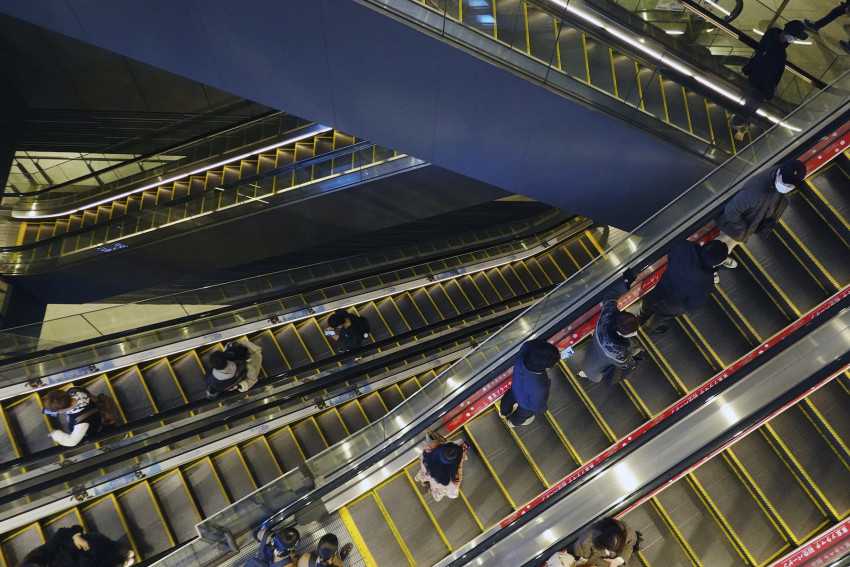Universal simple income proposal by Suga adviser may be hard sell in Japan
11 January, 2021

The idea of Japan introducing a universal basic income, recently floated by among Prime Minister Yoshihide Suga's economical advisers, has caught the attention at the same time when the coronavirus pandemic is stirring worries about job security and social inequality.
Previously, some opposition parties have pledged to review fixed cash payments for low-income individuals, but economists say the general public is paying more attention this time around as the proposal originated from Heizo Takenaka, a member of the Suga administration's growth strategy panel.
Takenaka's require a universal basic profit in mass media interviews also came following the government's blanket 100,000-yen cash-handout last year as a means of mitigating the influence of the pandemic on households met with a generally favorable open public reception.
Takenaka, who placed ministerial articles between 2001 and 2006 under former Primary Minister Junichiro Koizumi, possesses proposed that 70,000 yen be paid on a monthly basis to each citizen under the basic income course, financed by a good reallocation of the main public pension and welfare finances.
Calling it the "supreme safety net," Takenaka said within an interview with Kyodo Information in October that the cash payments should help inspire entrepreneurship and support those that lose their jobs because of digital transformation.
"There is an estimate showing an average payment worth 70,000 yen per person will not cause a major fiscal burden (on the government) as possible financed by a number of the social reliability spending that will no more be important," he said, adding that the federal government could choose to raise the cash amount for all those facing more serious financial difficulties.
A professor emeritus at Keio University and the chairman of staffing solutions organization Pasona Group Inc, Takenaka expressed the desire that the system would be launched "in four or five years," although he believes it'll be difficult to hold serious discussions on the problem until the coronavirus pandemic is in order. He has yet to formally propose the theory to the premier, he said.
Tomohiro Inoue, a co-employee professor of macroeconomics at Komazawa University in Tokyo, believes universal basic profits could become essential to address widening economic disparities as artificial cleverness advances and jobs are more digitally oriented -- a pattern being accelerated by the pandemic.
While there were examples in countries such as Finland and Canada of experimenting with basic income, in Switzerland a proposal to introduce a scheme was voted down in a national referendum in 2016, with around 77 percent opposing it.
Despite Takenaka's influence on Suga's monetary policymaking, however, economists and sociable welfare experts say that it's unlikely that japan public would agree to a scheme that would cause existing cultural welfare applications to be scaled down.
Keiji Kanda, a senior economist at the Daiwa Institute of Exploration, says it really is imperative for the federal government to drastically reform its pension and additional existing social security devices if it wants to introduce a simple income.
"But gaining the understanding of the public will never be convenient and without such reform, the government should introduce massive taxes increases," Kanda said.
Addititionally there is the question of if the public would accept the price tag on a program that doesn't pay out plenty of to meet up basic needs.
Predicated on what he possesses viewed of the public's response so far, Komazawa University's Inoue stated it could take a long time just before progress can be manufactured in discussions about the feasibility of the essential income in Japan.
An application that pays 70,000 yen a month would cost the federal government a lot more than 100 trillion yen annually, accounting for more than 80 percent of social reliability costs, such as for example welfare and people pension benefits, totaling about 121 trillion yen in fiscal 2018, in line with the latest available government data.
Karin Amamiya, a writer and anti-poverty activist, says 70,000 yen isn't enough to support persons residing in poverty, and that the government's foremost job in helping low-profit citizens is to fortify the social safety net.
"There are a few who can't work but need nursing attention and medical services. (Takenaka's proposal) lacks consideration for such persons," she said.
Source: japantoday.com
TAG(s):
